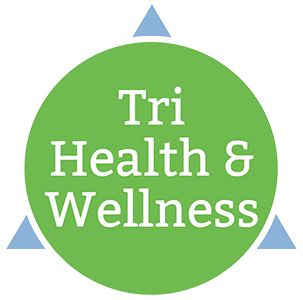7 Scientific Health Benefits of Vitamin C
Vitamin C (or ascorbic acid) is one of the most talked about vitamins. The nutrient gets special buzz for its immune-boosting potential. But vitamin C's ability to shorten the common cold only scratches the surface of its role in the body. This antioxidant isn’t naturally made by the body, so it’s crucial to obtain it from vitamin C–rich foods, according to the Mayo Clinic. Vitamin C can be found in a variety of foods, including red and green bell peppers, citrus fruits, kiwi, broccoli, tomatoes, and Brussels sprouts.
Adult women need 75 milligrams (mg) of vitamin C per day, and adult men need 90 mg, according to the National Institutes of Health (NIH). Most Americans source enough of the nutrient through diet alone.
What are the health benefits?
1. Vitamin C Stimulates Collagen Synthesis
The body depends on vitamin C for the synthesis of collagen, which is found in connective tissue around the body. Adequate vitamin C levels are essential for the production of collagen. Collagen is the most abundant protein in the body and plays a critical role in connective tissues like those found in our organs and of course our hair, skin, and nails.
You may know collagen as the skin’s anti-aging savior as some health and beauty experts portray it. A study published in in Clinical, Cosmetic, and Investigational Dermatology found that topically applying vitamin C to the skin led to increased collagen production and younger-looking skin. The increased collagen synthesis also means vitamin C helps heal wounds.
2. Vitamin C Combined With Iron Leads to Better Absorption
Another plus to vitamin C is how it interacts with other vitamins and minerals in the body, such as iron. Iron supports proper growth and development, aids the body’s ability to deliver oxygen throughout the body, and helps make certain hormones. Nonheme iron, which is the type of iron found in plants, can be tricky for the body to absorb, but eating vitamin C (and ideally heme iron, which is commonly found in meat and seafood) at the same time as nonheme iron leads to better absorption.
3. It Plays a Role in Enhanced Brain Function
Vitamin C also plays a role in neurotransmitter synthesis and cognitive functioning. Neurotransmitters are important for sending messages from the brain to the rest of the body. Additionally, more vitamin C may be associated with increased brain function.
4. Its Antioxidant Properties Help Guard Against Chronic Disease
Many of the benefits of vitamin C can be traced to its antioxidant properties. Antioxidants act to neutralize free radicals, which are volatile and harmful substances produced in the body that cause damage to cells and tissues. Antioxidants can protect against the development of serious health conditions, such as cancer or heart disease.
5. Vitamin C Strengthens the Immune System
Perhaps vitamin C’s best-known benefit is its positive effect on the immune system. Vitamin C was found to support the immune system by protecting against oxidative stress, aiding in microbial killing, and decreasing the potential for tissue damage. A deficiency in this vitamin has been shown to increase the rate of infections. It’s unlikely that loading up on vitamin C once you start sniffling will keep you from getting a cold, but it could help you recover more quickly.
6. Vitamin C May Bolster Cancer Treatment
The Mayo Clinic notes that eating a diet filled with vitamin C–rich fruits and veggies appears to reduce the risk of certain types of cancer.
7. Antioxidant-Rich Vitamin C Protects the Eyes
The American Optometric Association notes that vitamin C can lower the risk of developing cataracts and can also help slow the progression of age-related macular degeneration (AMD). Specifically, previous research has found taking 500 mg per day as part of a daily supplement slowed the progression of the disease among people with moderate AMD, likely because of its antioxidant properties.
In summary, vitamin C goes beyond its reputation for immune support. Aiding in skin health, brain functioning, eye health, and reducing the risk of certain diseases. Including vitamin C-rich foods in your diet and meeting your recommended daily intake, offers a simple yet impactful way to support overall health. Prioritizing this nutrient can contribute to a healthier and more vibrant life.
Need help getting enough vitamin c? We can help! Consider one of our vitamin c shots. They are cost effective and delivered directly into your blood stream for maximum absorption.









